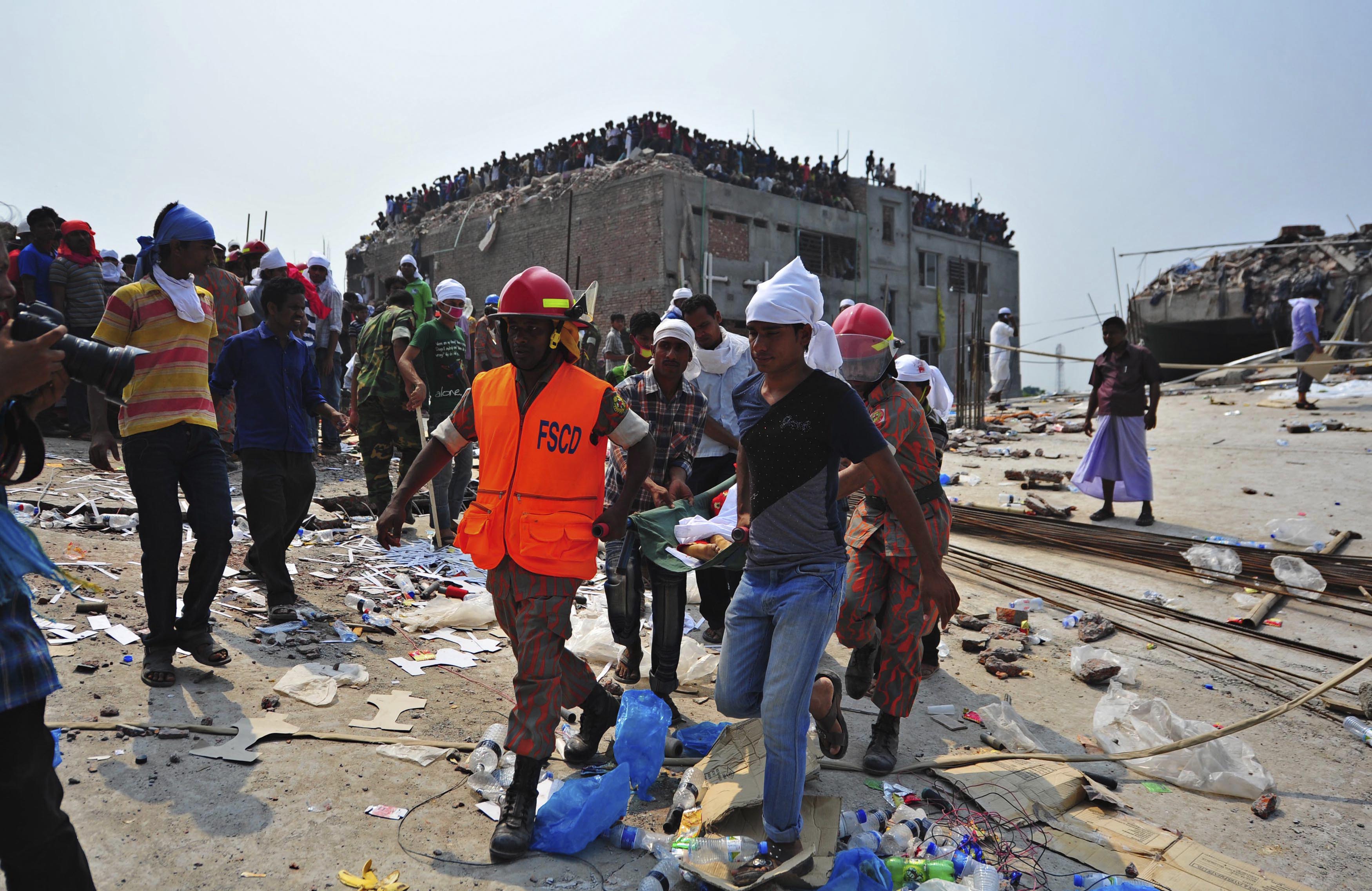News
Preventing Another Rana Plaza

Hoskins gives a stark account of the Rana Plaza garment factory tragedy, the causes and the results.
“The official death toll of Rana Plaza was 1,133, making it the deadliest garment factory disaster in history. Another 2,500 people were injured, many disabled permanently.
To be clear: this tragedy was not an accident. Nor were the recent deaths at Tazreen Fashions, also in Dhaka, and Ali Enterprises in Karachi, Pakistan. Rather, these horrible events were fully preventable, the likes of which trade unions and NGOs have been loudly warning against for decades.”
Preventing such tragedies is not rocket science. It involves implementing basic health and safety measures and allowing the formation of trade unions which can provide workers with a collective voice.
“Unless the rights of garment workers and their unions are respected, it is only a matter of time until tragedy strikes again and mires the fashion industry in mud and blood.”
Hoskins highlights the important role of UNI Global Union and IndustriALL who worked with leading ngos to produce the Accord which now binds 87 companies to stay in Bangladesh and improve safety.
“It was a risky strategy. On May 13, three weeks after the disaster, the agreement had attracted just two “maybes.” Media (and social media) pressure in Sweden quickly put H&M in a corner and brought them to the table, pen in hand. But many companies remained unmoved.”
Hoskins quoted UNI General Secretary Philip Jennings who described how direct action was required to get the companies signed up. “We said to our union affiliates in the retail sector, ‘Pick up the phone. Everyone of you has a collective agreement, some of you are sitting on boards of directors — you get the companies to sign up.’’
Hoskins ends by sounding a warning note, “Yet even with the implementation of the Accord, there is an extremely long way to go until Bangladeshi garment workers are fully protected and the country’s labour laws become consistent with international standards. Bereaved families and disabled workers from Rana Plaza and Tazreen Fashions still await compensation.”
Read the full article in Business of Fashion here

